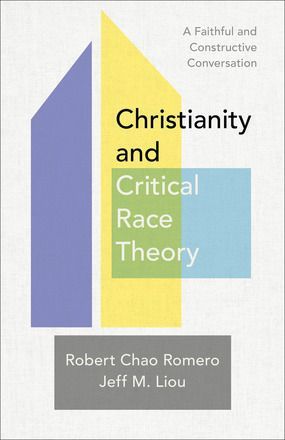Questions on the Trinity, part 1
Josh Cramer • June 27, 2023
Some thoughts on your questions about the Trinity

I apologize. This post got too long, so I've split it into two parts. Too many interesting and fun questions! Thanks for that! Here in part 1, I have three main question blocks: (1) looks at our non-Trinitarian neighbors and how to think about the fact that the word "Trinity" is not in Scripture, (2) deals with some questions about the Holy Spirit, and (3) explores some aspects of the relationships between persons of the Trinity. In part 2, we'll ponder the Trinity and heaven, the Trinity and Jesus' self-emptying, and gender in the Trinity. Thanks again for your questions!
Thanks for sharing! I’d love to hear more of your thoughts on what problems you are finding in your discussion with some of our non-Trinitarian neighbors.
And on the word “Trinity” not being in the Bible: it feels like there’s a lot of directions to go with that. Let me say two quick-ish things and then I’m happy to chat more if that’s helpful. First, it’s very true that the word “Trinity” isn’t in the Bible, but the question remains whether the concept is. Other words not in the Bible, that we tend to think of as pretty important: “atonement”, “incarnation”, “Christianity”, “discipleship”, and so on. Those words don’t appear but the concepts certainly do. So, the choice before us is whether the Bible should limit our language, or whether we have the freedom from God to give language to ideas found in the Bible and elsewhere.
Second, this all relates to how we read the Bible and what the Bible is actually for. We can read the Bible as authoritative for our lives and yet read in several different ways. Some Christians read for the words and direct answers to all of our key questions (sometimes called a “biblicist” or “literalist” way of reading). The “the Bible says it, I believe it, that settles it” slogan would fit in this camp. If it’s in the Bible, we agree and submit; if it’s not in the Bible, it must not be that important. This way of reading emerged after the Enlightenment in response to Bible scholarship that seemed to want to master the Bible and tear it apart. I love the attitude of wanting to follow after God! But I wonder if that’s how God intends for us to read His Word to us.
Another way of reading Scripture is to enter into the world that God is opening us up to and inviting us to join in. Scripture points us to realities beyond ourselves and beyond our senses. It draws us toward the deeper and more firm realities of the heavens, which will come down and unite with earth in the New Creation. It pulls us into the grand story that God is telling about Himself and humanity. It invites us into the great romance between the Lamb and his bride. It engages our hearts, minds, souls, and bodies and requires our imaginations to grow and develop alongside our brains so that we can be more whole people fully responding to the God who made and loves us.
There’s a lot more I could say about that—and if you want to grab coffee or beer and talk it through, I’d love that!—but for now let me just confirm what you already know and say that I tend to think God is inviting us to read Scripture the second way. In the first way of reading, God tells us what to think and do and we follow; in the second way, God is forming us into people more like Him. That fits more with the God I see in Scripture. So, the fact that the word “Trinity” doesn’t occur in the Bible doesn’t bother me, because I take the word to be a pretty good (though imperfect, like all of our words) description of an idea that I think is there. Is that helpful?
2. How do you hear the Spirit?
And: I feel like we spend the most time studying/praying to/considering God and Jesus. How do we become more aware of the Holy Spirit in our walk?
And: We call ‘the Father’ Yahweh or just God. We call ‘the Son’ Jesus. But ‘the (Holy) Spirit’ doesn’t have a revealed name. Is there a more personalized language?
These questions all center around the Holy Spirit. We had other Holy Spirit questions that we discussed in the in-person Q&A. This may be an important place for us to sit and wonder together! Holy Spirit, what are you inviting us into and how can we hear you well?
I’ll take the last question first: I’m not aware of more personalized language for the Spirit. In the Hebrew Scriptures and the New Testament, there are other words that the writers use to describe the Spirit (Comforter/Counselor/Advocate, Presence of God, Spirit of Truth, etc) but none of them seem more personal. I tend to talk to the “Spirit” or “Holy Spirit”, but I’m curious if you have other ideas? How do you refer to God’s Spirit, or what have you seen or heard?
The other two questions are really similar, so I’ll answer them together. There are all kinds of ways to learn to listen to and be aware of the Spirit. I would suggest getting together with wise friends or meeting with a spiritual director (we have some at RCB, or others I can recommend!) if you’d like to learn more. In my experience, our listening and awareness of the Spirit centers around us giving our attention. The Spirit is always at work! When we pay attention, we get to see God’s movement. So, we might start by praying that we’d get to see what the Spirit is up to, and then keep our eyes open for the movement of the Spirit in our lives and the lives of those around us. That said, there are some ways that people have found helpful through church tradition. Some may be more helpful for you than others. These are the things I’ve found most helpful for me, and they all come down to giving my attention to the Spirit.
First, listening to the Spirit in Scripture. There are lots of ways to read Scripture, but one that has helped me learn to hear from the Spirit is Lectio Divina, which involves reading, meditating, praying, and then contemplating a passage of Scripture. It’s a good way to slow down and pay attention to what the Spirit might be saying to us in the moment.
Second, fasting. I have found that noticing and naming my appetites has helped me to distinguish their voices from the voice of the Spirit. Fasting has enabled me to notice my hunger and then realize that I don’t have to listen to it all the time, that I don’t live by bread alone. That realization has created space for me to listen to the Spirit’s invitations in new ways. And if I can add one little note here: fasting from food is helpful and valuable, but I suspect that fasting from screens and devices is probably just as big an ask for us. I have found that fasting from the internet or my phone regularly shapes my heart in significant ways.
Third, silence. When I slow myself down quiet my heart before God, I find myself drawn to God’s work around me. Silence helps me to notice myself and what God is doing in and around me. In silence, I sometimes notice my own emotions and heart longings; sometimes, I remember God’s activity through the previous day or week; other times, I can dream God’s dreams for my future or the future of others; sometimes, I just get to experience God’s love and grace for me. All of that is the work of the Spirit.
Fourth, noticing and praying for those around me. When I was in grad school, I often rode the bus into campus. On the bus, I would regularly notice those around me and then pray for them. Sometimes, the Spirit would give me a sense about a person—here’s what that person needs today, here’s how God is moving, etc—and very rarely (but sometimes) the Spirit would prompt me to move closer or start a conversation with a person I was praying for. This is a practice I’ve continued (though a bus is kind of an ideal place to practice this kind of noticing and praying, and I don’t ride the bus nearly as often as I used to). Noticing those around us and praying for them invites us to pay attention to the Spirit’s presence and work in others.
So, I suspect the Spirit is inviting us to pay attention—in Scripture, in our own appetites, in ourselves, and in others. Holy Spirit, help us to pay attention to You and Your presence and work!
3. You mentioned “the Father gave the Spirit to Jesus, so Jesus could send the Spirit to the people.” Didn’t Jesus ask the Father, and the Father sent the Spirit?
And: Is the Trinity equal? If both the Spirit and Jesus ‘speak’ what the Father says, and ‘go’ when the Father sends, is there a ranking / authority present?
And: If all parts of the Trinity are equally valuable, why do we focus more on Jesus?
Okay, there is a whole bunch here, on deep and controversial Trinitarian theology that goes back more than a thousand years and relates to several parts of the church, including (but not limited to): church authority and hierarchy, women and men in the church, the split between the Eastern Orthodox and Roman Catholic Churches, how we know what we know, etc. We can’t really get into all of that in a blog post (especially one that’s already this long). But I can point some directions and (once again!) invite you to more conversation.
That first question—“Didn’t Jesus ask the Father and the Father sent the Spirit?”—points to the theological split between the Western branches of the Church (Catholics and Protestants) and the Eastern branches (Eastern Orthodoxy). The West has generally argued that the “Spirit proceeds from the Father and the Son”, while the East argues that the “Spirit proceeds from the Father”. I’m not sure our questioner was trying to get into that whole debate, but that’s part of the background to a full answer.
In my statement (“the Father gave the Spirit to Jesus, so Jesus could send the Spirit to the people”), I wasn’t trying to dive into all of that; I was just trying to say what I heard our passage say. I was working from Acts 2:32-33, which says that Jesus “received the promise of the Spirit from the Father” and then “poured out” the Spirit (or, possibly, the impact of the Spirit). Scripture gives several answers as to where the Spirit comes from, which makes sense to me when we are thinking about a God who transcends our understanding and being. For example, in John 14 (see 14:15), Jesus says that the Father will send the Spirit. And then in John 15-16 (see 15:26, 16:7), Jesus says that he will send the Spirit himself. As another example, the Spirit is usually called the “Holy Spirit” or “Spirit of God”, but there are also a few times that Scripture says “Spirit of Jesus” or “Spirit of the Lord”. Western theologians have tended to argue that both Father and Son send the Spirit and Eastern theologians have tended to argue that the Father really does the sending while the Son is asking for the Father to do the sending. I am happy to live in a whole bunch of uncertainty about that question: if God has sent us the Spirit, then I’m good with whatever paths God used (and I assume I wouldn’t really understand it all anyway).
The second question, about the equality of the Trinity, is a doozy. There are loads of Church teachings on this question, with all kinds of implications for life and practice. The equality and/or hierarchy of the Trinity relates to church hierarchy, political structures, and—in our time—women in leadership. There are several ways that theologians deal with that question, but the foundation to the Church’s argument over time is that the three persons of the Trinity are fundamentally equal. The creeds and councils have all held equality among the persons, arguing that if one person holds authority over the others then it’s not really clear that the other persons can be called “truly God” (as the Nicene Creed refers to Jesus).
The discussions here get very long and very complex, but one summary that has helped me is to say that there is “order” within the Trinity but not “hierarchy” or “inequality”. The Father is the source of the Son and Spirit (and—see above—the Son might also be part source of the Spirit) but they are equal. Other language that you might see if you take a deep dive into these questions: “eternal generation of the Son” (an old, orthodox position; this blog has a helpful discussion for those interested); “eternal subordination of the Son” (what I would consider a new, heretical position, that may have been developed in order to subordinate women to men; here is a pretty technical discussion); “immanent” and “economic” Trinity (“immanent” referring to the Trinity in eternity, “economic” referring to the Trinity as God acts within creation); “economic subordination of the Son” (an old, orthodox idea that the Son submits to the Father while walking on earth). There’s so much here, if you want to take a deep dive. Roger Olson has thoughts, Alistair Roberts has a long series of posts (and, to be clear, I don’t agree with Roberts on his view of women in leadership, but he is thoughtful), Aimee Byrd has thoughts about how this has been applied to women in leadership, and many others have written a lot on this question.
My summary: there is order within the Trinity but not hierarchy, and certainly not inequality. If you want to talk more about that, I would love to discuss.
Last question here: why the focus on Jesus? Good question. I addressed this a bit in our Q&A time and I’m happy to discuss again here. Each person of the Trinity is equal and vital for our salvation, and yet our attention is on Jesus. Is that how things should be?
It seems to me that we should pay more attention to the Father and the Spirit. And, probably more attention to Jesus, also. I would love to practice a more fully Trinitarian Christianity. Let’s pray to the Father, watch and study the Father’s work in Scripture and creation and salvation history, pay attention to the Father’s creative work in people around us; let’s also pray to the Spirit, watch and study the Spirit’s work in Scripture and church and creation, pay attention to the Spirit’s creative work in people around us, listen to the Spirit’s leading and guidance in our lives (see Question 2 above).
And, Jesus is a focal point of our faith for very good reasons. God tells us that Jesus fulfills Scripture, gives meaning to history, and reveals God’s own presence in ways that no other person does. There are several passages we could look at to describe why we emphasize Jesus (John 1, Hebrews 1, Mark 1, Romans 1—a lot of New Testament first chapters talk a lot about Jesus, which may be a clue for us…), but Colossians 1 is a great one. Paul says that in Jesus, we have “redemption”, “forgiveness of sins”; Jesus is “image of the invisible God”, “firstborn of creation”, the one by/through/for whom “all things were created”, “before all things”, the one in whom “all things hold together”, “head of the body”, “firstborn of the dead”, God’s “fullness”. There is a lot of rich theology there, worth sitting with and meditating on. Feel free! But I just want to point to three things:
1. We know what we know in and through Jesus;
2. Jesus rules as Lord;
3. God makes Himself present to us, and brings us close to Him, in and through Jesus.
We know what we know about God, Scripture, ourselves, and the world because we pay attention to Jesus. It makes sense to me to center Jesus in our faith journeys and communities because paying attention to him helps us to know what God wants us to know. Also, Jesus is Lord, and so it makes sense to make our Lord the focal point of our meditation and worship. Finally, God has revealed Himself to us in uniquely powerful ways in Jesus, and we get to participate in God’s life by our participation in Jesus. This is one of the incredible benefits of following a fully-human/fully-God Lord. In Jesus, God is fully there, and so is humanity. We are sharing in and experiencing God the Father and God the Spirit as we live life in Jesus.
I feel like I’m just setting some direction there, but if I don’t stop myself, I’ll just go on forever. Point being, yes! Let’s talk more about the Father and the Spirit. And let’s also talk more about and follow after Jesus.
Thanks again for some great questions! And may the God who is Three-in-One bless and keep you.

This is how I remember Lent as a kid: go to mass on Ash Wednesday (I have no memory of any sermon, lol), vow to give up something (that lasted as long as a New Year’s resolution), and eat Long John Silver’s fried fish on Fridays (their hushpuppies and crunchies…mmmm). We didn’t eat meat on Fridays (unless we forgot, but we prayed, so it was ok); it was something everyone in the church did, right? I knew it was leading up to Easter--other than that, I had no real understanding or connection to it. Lent was taught more like an obligation rather than an opportunity. An opportunity to reflect, rejoice, rest, repent (what other “r” words can we think of?) on Christ’s journey to the cross. The next 40 days is an opportunity, an invitation to draw closer to the Giver of Life. For some, this might look sacrificial (giving something up), for others it might be a genesis (starting something new), or it can be a combination of the two. “Your kingdom come, Your will be done, On earth, As it is in heaven” Our Lord doesn’t just teach us to pray, he embodies prayer. He inaugurates God’s kingdom on earth through his presence with us; through his faithful obedience, we get to see and experience heaven on earth. This does not come without temptation, and trials, and wandering astray at times—yet our loving God invites. He invites us to remember, to reengage with the One who creates and holds all things; He invites us to lay down our lives and pick up our crosses. We want to invite you to participate with RCB, as we journey with Christ to Calvary, praying for the strength to be obedient… Your kingdom come, Your will be done, On earth, As it is in heaven.









